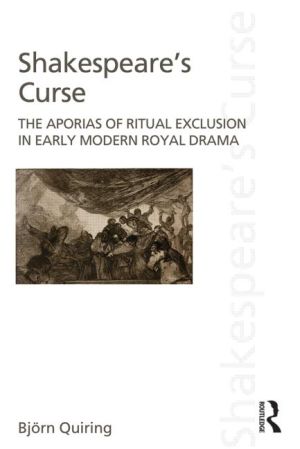
The device(s) you use to access the eBook content must be authorized with an Adobe ID before you download the product otherwise it will fail to register correctly.
For further information see https://www.wildy.com/ebook-formats
Once the order is confirmed an automated e-mail will be sent to you to allow you to download the eBook.
All eBooks are supplied firm sale and cannot be returned. If you believe there is a fault with your eBook then contact us on ebooks@wildy.com and we will help in resolving the issue. This does not affect your statutory rights.
Conceptualizing the curse as the representation of a foundational, mythical violence that is embedded within juridical discourse, Shakespeare's Curse pursues a reading of Richard III, King John and King Lear in order to analyze its persistence in the discourses of modernity. Shakespeare wrote during a period that was transformative in the development of legal thinking. But, taking up the relationship between theatre, theology and law, Bjoern Quiring argues that constitutional and contractarian legal thinking did not replace, but reinforced and reinvigorated Christian ideas about the curse and the oath.
Drawing on the work of Jacques Derrida, Walter Benjamin and Giorgio Agamben, among others, Quiring analyses the performativity of the curse, and tracks its power through the juristic themes -- of sovereignty, legitimacy, natural law, the exception, succession, and so on -- that are pursued within Shakespeare's plays. As such, Shakespeare's Curse provides an original and important insight into early modern legal developments, as well as a fresh perspective on some of Shakespeare's best known works.